Introduction
Dog blood types refer to the classification of blood based on the presence or absence of inherited antigenic substances on the surface of red blood cells. Just like in humans, dogs have different blood types that are genetically determined. There are at least 13 known dog blood group systems, but the most commonly referenced are DEA 1.1 positive or negative, 1.2 positive or negative, 3 positive or negative, 5 positive or negative, and 7 positive or negative (Source).
Understanding dog blood types is important for blood transfusions, breeding, and canine health. DEA 1.1 positive is the most common blood type in dogs while DEA 1.1 negative is the universal donor that can be given to dogs of any blood type. Testing and typing blood is critical before doing transfusions to avoid transfusion reactions. While many dog breeds are predisposed to certain blood types, any type can occur.
History
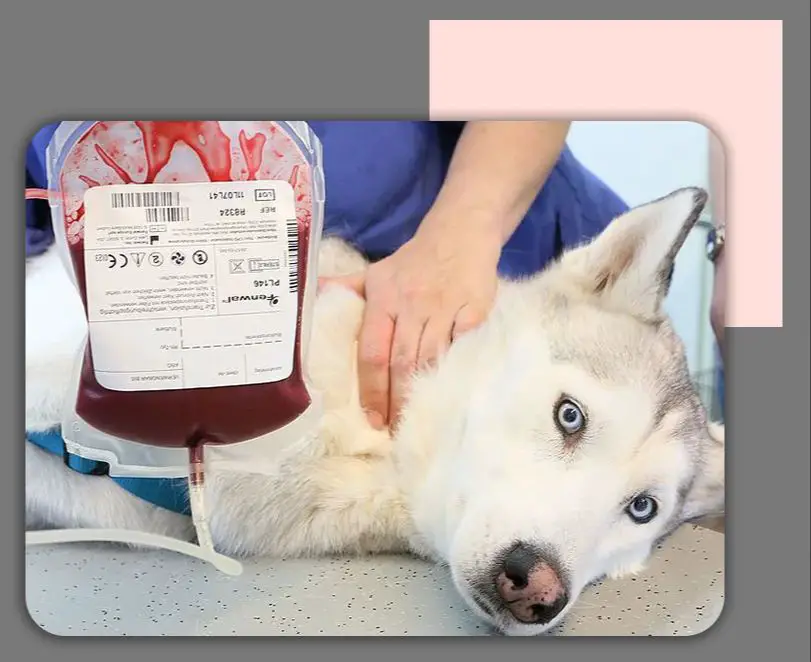
Dog blood types were first discovered in the early 1900s when researchers identified agglutination reactions between different canine blood samples (Davidow, 2021). However, it was not until the 1950s that canine blood groups were further defined and characterized. Veterinarian Albert Gray at Cornell University identified 4 dog erythrocyte antigens (DEA 1.1, 1.2, 3, and 5) that defined the main canine blood groups (Davidow, 2021). Gray’s research demonstrated the importance of blood typing and cross-matching dogs prior to transfusion to prevent life-threatening reactions.
In the 1960s, more research by Brommer and others identified additional canine blood group systems including Dal, Kai 1 and 2, Mik, and Heini (Davidow, 2021). Over a dozen blood groups are now recognized in dogs. However, DEA 1.1 remains the most important for its role in severe transfusion reactions.
Types
The major dog blood types are DEA (Dog Erythrocyte Antigen) 1.1, 1.2, 3, 4, 5, and 7. These are based on antigens found on the surface of red blood cells (The Spruce Pets).
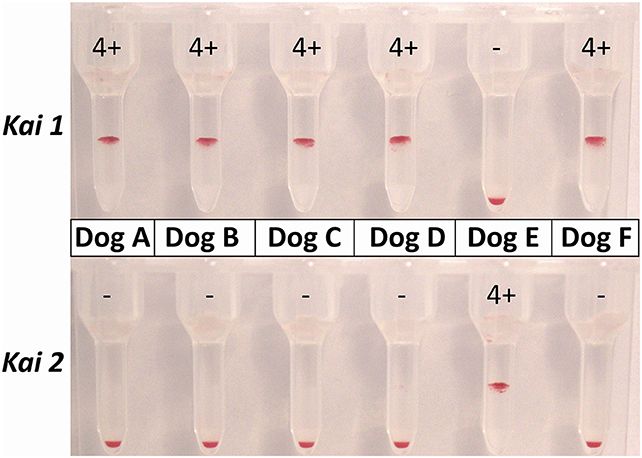
DEA 1.1 and DEA 1.2 are the most common dog blood types. DEA 1.1+ blood types make up about 50% of dogs while DEA 1.2+ makes up just under 50%. DEA 3, 4, 5, and 7 are rarer types found in only certain breeds (IndyVet).
The DEA types are inherited separately, so dogs can have more than one DEA type. Dogs that are DEA 1.1- can have a severe reaction if given blood from a DEA 1.1+ dog. Conversely, DEA 1.1+ dogs do not react to DEA 1.1- blood (Merck Veterinary Manual).
Certain breeds have a higher prevalence of some blood types. For example, DEA 1.1- is common in Greyhounds, while DEA 7 is nearly exclusive to Dalmatians (The Spruce Pets).
Testing
Dog blood types are most commonly tested using card-based or gel column agglutination kits that allow veterinarians to rapidly test a dog’s blood type in-house. These kits contain antibodies that cause agglutination or clumping of red blood cells when mixed with blood of a certain antigen type. Two main kit options for canine blood typing include:

The RapidVet®-H Canine DEA 1.1 Blood Typing Kit utilizes gel column agglutination technology and provides results in just 2 minutes with 2 simple steps – adding blood to the sample well and interpreting the agglutination reaction. This allows veterinarians to quickly determine if a dog is positive or negative for the DEA 1.1 antigen. According to RapidVet, their kit has a specificity of 100% and sensitivity of 98.2% for identifying DEA 1.1 status.
The Alvedia Quick Test BT for canine blood typing also provides results within 2 minutes through blood clumping reactions on a card-based assay. This kit detects dogs that are DEA 1.1 positive, DEA 1.1 negative, or DEA 1.2 positive. It involves adding a blood sample and anti-DEA 1.1 or 1.2 sera to reaction circles and viewing agglutination. Alvedia states their test kit has 100% specificity and sensitivity.
These rapid, in-house blood typing kits allow veterinarians to quickly determine a dog’s blood type before transfusions to identify any incompatibility risks. While send-out lab testing is also available, the fast turnaround of in-clinic kits makes them ideal for emergencies when dogs need transfusions.
Transfusions
Blood transfusions can be a life-saving procedure for dogs, but they carry risks if not performed properly. The most important factor is ensuring blood type compatibility through cross-matching. There are over 13 recognized dog blood types, with DEA 1.1 being the most antigenic (https://www.merckvetmanual.com/dog-owners/blood-disorders-of-dogs/blood-groups-and-blood-transfusions-in-dogs).
Cross-matching involves mixing a sample of the recipient’s blood with the donor blood to check for agglutination or clumping, which would indicate an incompatible match. Cross-matching prior to each transfusion is considered best practice (https://www.petbloodbankuk.org/vet-professionals/i-need-advice/cross-matching/canine-cross-matching/).

Mismatched transfusions can result in potentially fatal hemolytic or allergic reactions. Plasma leakage, renal failure, and disseminated intravascular coagulation are risks. Even with proper cross-matching, other factors like improper storage and underlying patient conditions can also cause transfusion reactions (https://www.vet.cornell.edu/animal-health-diagnostic-center/testing/protocols/immunology/crossmatch).
While the first transfusion may be tolerated in some dogs despite a mismatch, subsequent exposures are more likely to stimulate antibody production and severe reactions. For this reason, diligent typing and cross-matching is essential to safe transfusions.
Breed Differences
While dogs can have any blood type, there is variation in the prevalence of DEA 1.1 positive and negative dogs across breeds. For example:
Greyhounds are almost exclusively DEA 1.1 negative, with over 95% testing as DEA 1.1 negative. This makes greyhounds universal donors for other dogs.
Other sighthound breeds like Whippets, Salukis, and Afghan Hounds also have a high prevalence of DEA 1.1 negative dogs. This may be an evolutionary adaptation for speed and stamina in these breeds that have been selectively bred for coursing.
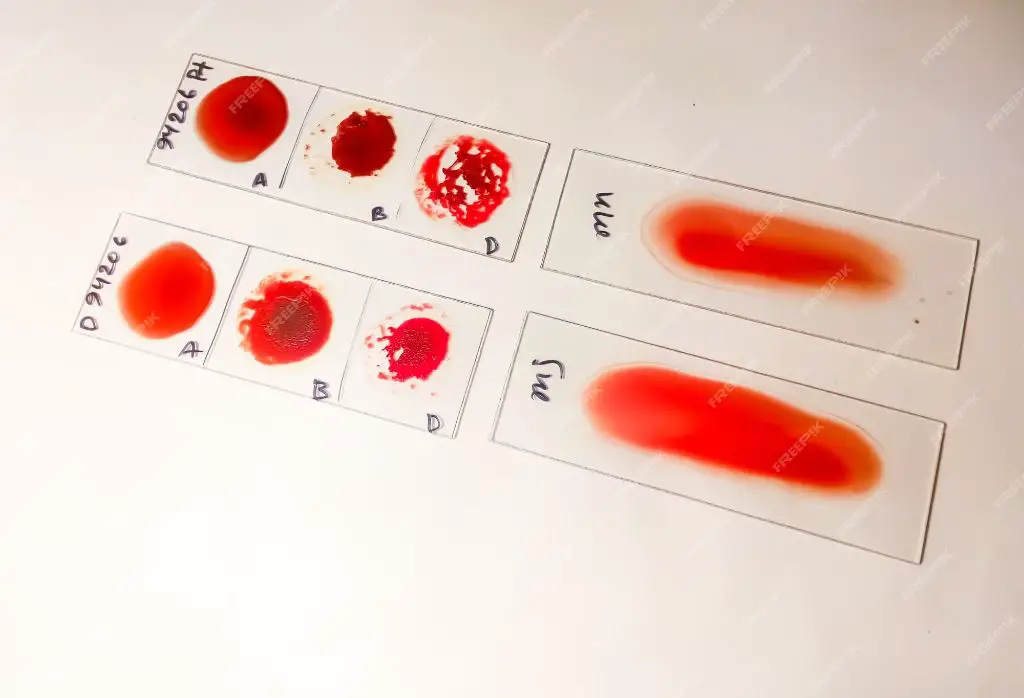
In contrast, over 95% of Dalmatians test as DEA 1.1 positive according to the IndyVet Blood Bank. Other more common breeds like Labrador Retrievers, Golden Retrievers, Boxers, and German Shepherds also tend to test positive for DEA 1.1.
There are also breeds with more equal distributions of DEA 1.1 negative and positive dogs, including mixed breed dogs, Beagles, Poodles, and Collies.
DEA 1.1
DEA 1.1 is an antigen found on the surface of red blood cells in dogs. Approximately 40% of dogs are positive for DEA 1.1, meaning that they have that antigen on their red blood cells (source 1). DEA 1.1 positive dogs can only receive DEA 1.1 positive blood, while DEA 1.1 negative dogs are considered “universal recipients” and can receive blood from any dog, regardless of blood type. Dogs that are DEA 1.1 negative make up about 60% of the canine population.
DEA 1.1 negative dogs do not have any antibodies against the DEA 1.1 antigen. However, DEA 1.1 positive dogs have anti-DEA 1.1 antibodies that can cause a potentially fatal hemolytic transfusion reaction if they are given blood from a DEA 1.1 negative dog (source 2). For this reason, blood typing and cross-matching is recommended before transfusions to prevent sensitization.
The implications of being DEA 1.1 positive versus negative are important to understand for blood transfusions. DEA 1.1 negative dogs are considered universal donors, while DEA 1.1 positive dogs can only receive DEA 1.1 positive blood once sensitized. Knowing a dog’s DEA 1.1 status helps determine compatibility for safe blood transfusions.
Health Impacts
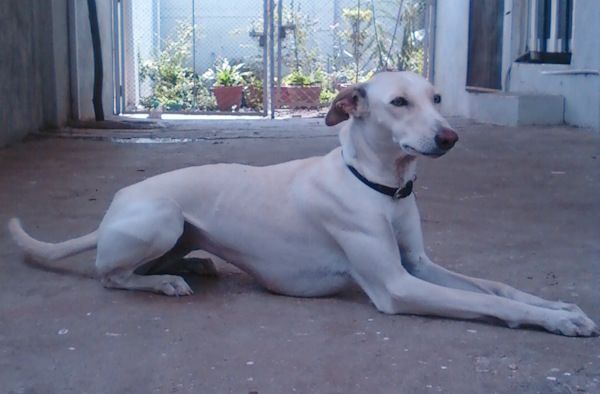
A dog’s blood type can significantly impact its health, especially when receiving blood transfusions. The most dangerous scenario is when a dog receives a transfusion of an incompatible blood type. This can result in a severe, life-threatening reaction called an acute hemolytic transfusion reaction (HTR) [1]. The dog’s immune system will identify the donor blood cells as foreign and produce antibodies to attack them, leading to massive destruction of the red blood cells.
The most common cause of an acute HTR is a mismatch between a DEA 1.1 positive donor dog and a DEA 1.1 negative recipient. This is because DEA 1.1 is a dominant blood type, so any dog that receives DEA 1.1 positive blood but is negative themselves is at risk of having a severe reaction [2]. An HTR requires intensive treatment such as IV fluids, blood pressure support, and possibly a blood transfusion from a properly matched donor.
For owners of DEA 1.1 negative dogs, it is critical to have them blood typed so incompatible transfusions can be avoided. Breeds such as Greyhounds have a higher prevalence of DEA 1.1 negative blood types. Owners should work closely with their veterinarian to manage any transfusion risks for their dog’s specific blood type [3].
For Owners
What dog owners should know about blood typing and transfusions:
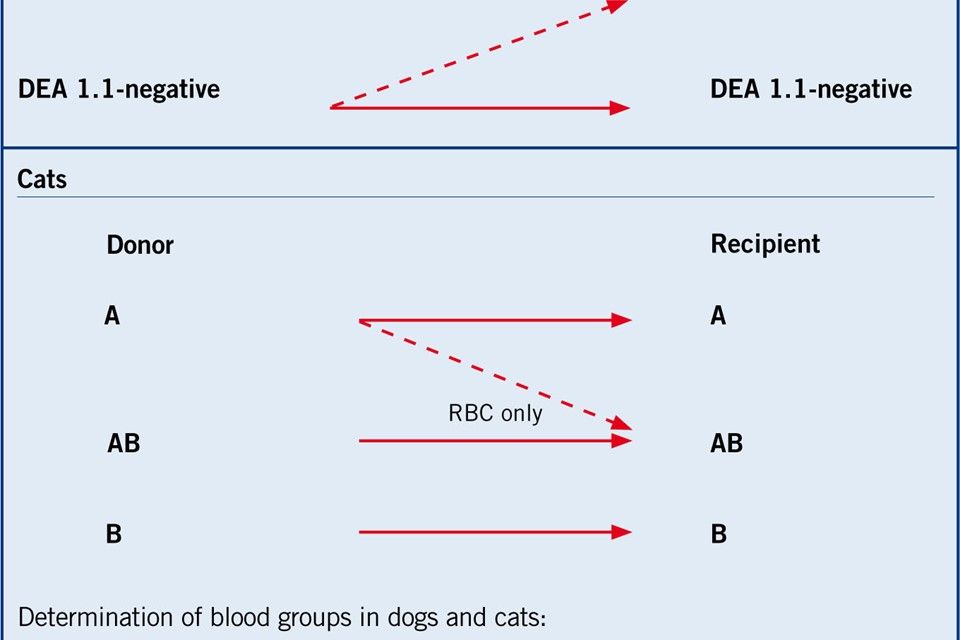
According to the American College of Veterinary Internal Medicine, it’s important for dog owners to know their pet’s blood type, especially if the dog has any illnesses that may require a transfusion. The most common blood type of dogs is DEA 1.1 positive, making up about 40-60% of dogs. However blood types differ significantly across breeds.Canine and Feline Blood Types and Blood Compatibility
Before any transfusion is done, dogs should be blood typed and cross-matched to find compatible blood. Not doing this risks a potentially fatal immune-mediated reaction. Owners should work with their vet to establish their dog’s blood type either through commercial lab testing or in-house blood typing cards. Knowing the blood type ahead of time could save critical treatment delays if an emergency transfusion is ever needed.
While the universal donor type DEA 1.1 negative can be transfused to any dog safely, dogs with DEA 1.1 positive blood should only be given DEA 1.1 positive blood. Breeds such as Greyhounds, German Shepherds, and Dobermans are more likely to be universal donors.DO YOU KNOW YOUR DOG’S BLOOD TYPE?
By being aware of their dog’s individual blood type, owners can better prepare for any emergency care. While not every dog will need a transfusion, owners should discuss blood typing with their veterinarian to determine if establishing a blood type on record is appropriate based on their pet’s health history and breed profile.
Conclusion
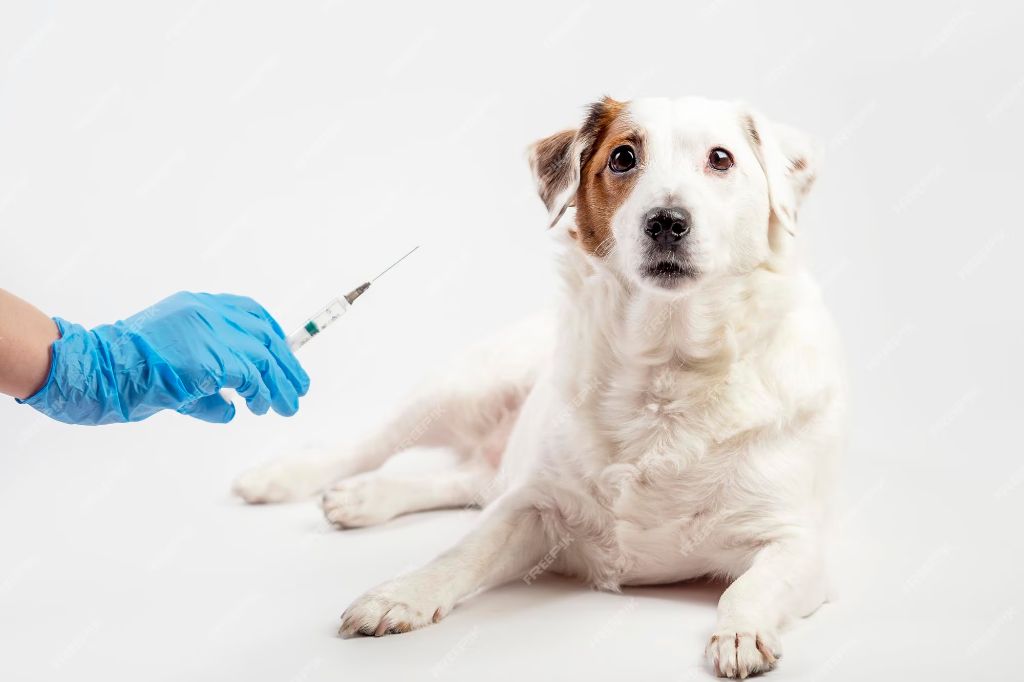
In conclusion, understanding dog blood types is important for veterinarians and owners alike. There are over a dozen known dog blood groups, with DEA 1.1 being the most significant. DEA 1.1 positive is the universal donor while DEA 1.1 negative is the universal recipient. Blood typing and crossmatching helps ensure safe transfusions. Certain breeds are more likely to be DEA 1.1 negative. Testing can identify potential reactions and support medical care. Overall, dog blood transfusions can be lifesaving when done properly with knowledge of blood types. With ongoing research, veterinarians continue deepening understanding of canine blood groups. Responsible owners benefit from learning their dog’s blood type in case of emergency needs. While complex, the basics of dog blood provide valuable insight into canine health.
